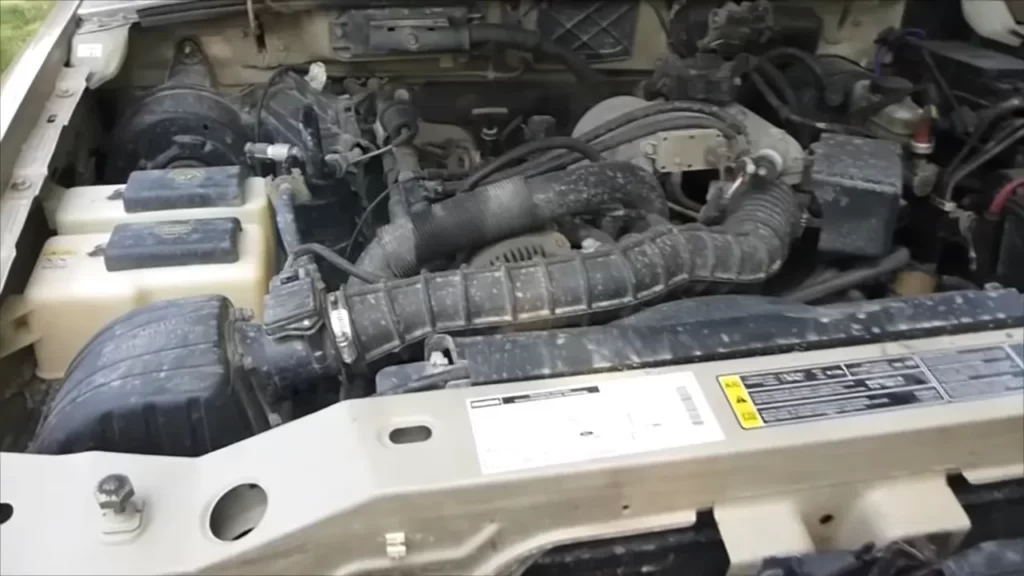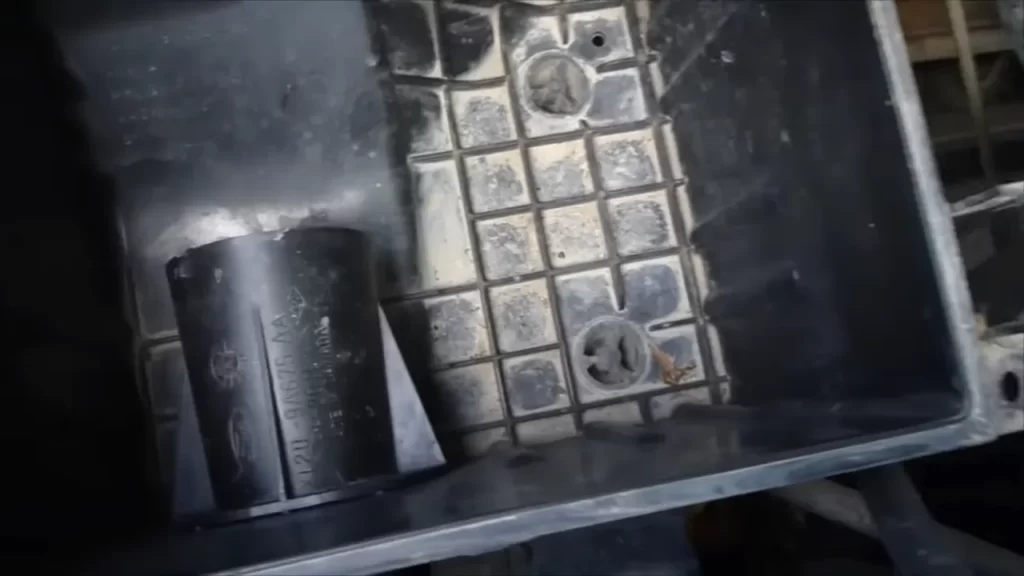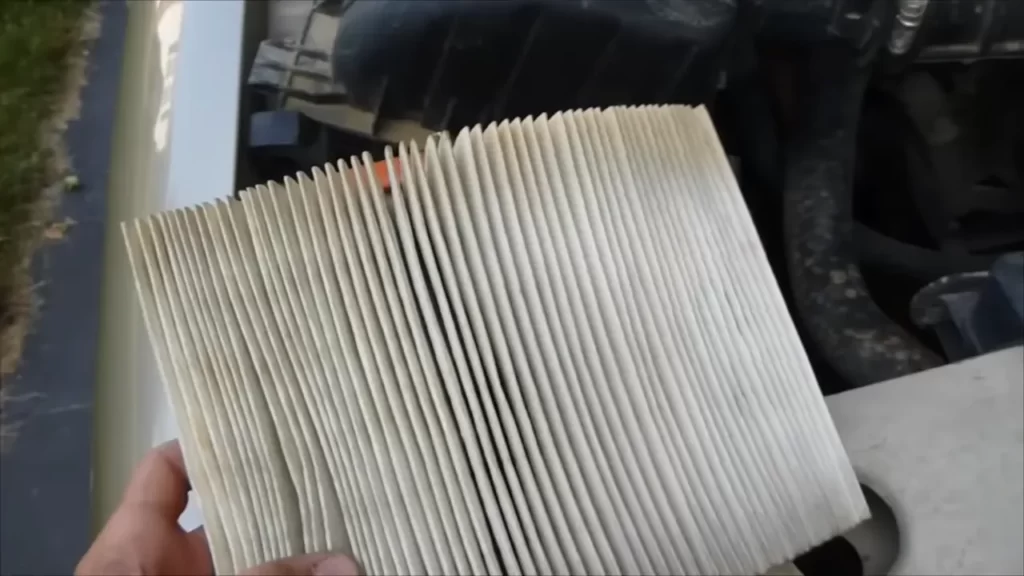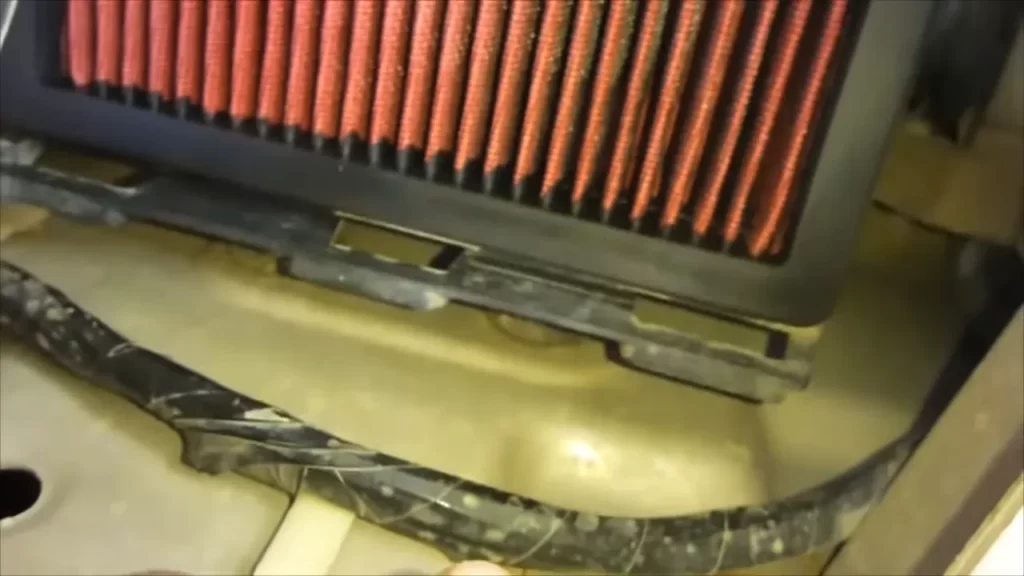To install an air filter in your car, open the hood and locate the air filter housing. Unscrew the housing, remove the old air filter, and replace it with the new one.
Rescrew the housing and close the hood.
The Importance Of Air Filters In Cars
Why air filters are crucial for car performance and longevity
One crucial component that often goes unnoticed in our cars is the air filter. While it may seem insignificant, having a clean and functioning air filter is paramount for the overall performance and longevity of your vehicle.
Firstly, let’s talk about engine performance. The engine requires a precise mixture of air and fuel for combustion, and the air filter plays a crucial role in this process. A clogged or dirty air filter can restrict the airflow to the engine, resulting in reduced power and efficiency. On the other hand, a clean air filter allows for proper air intake, promoting better combustion and ensuring optimal engine performance.
Moreover, a clean air filter also contributes to the longevity of your car’s engine. By preventing contaminants such as dust, dirt, and debris from entering the engine, the air filter safeguards the internal components from potential damage. Without an efficient air filter, these particles can infiltrate the engine and cause premature wear and tear, leading to costly repairs or even engine failure.
How dirty air filters can affect engine efficiency and fuel consumption
A dirty air filter doesn’t just impact engine performance, but it can also have a significant effect on your fuel consumption. When the air filter becomes clogged with dirt and debris, it restricts the airflow, resulting in a rich air-fuel mixture. This unbalanced ratio can lead to incomplete combustion and wasted fuel, causing your engine to consume more fuel for the same level of power output.
By regularly cleaning or replacing your air filter, you can improve engine efficiency and save on fuel costs. A clean air filter allows for a proper air-fuel mixture, maximizing combustion efficiency and reducing fuel wastage. As a result, your car can go the extra mile on each tank of gas, saving you money in the long run.
The role of air filters in maintaining air quality inside the car cabin
Air filters also play a crucial role in maintaining air quality inside the car cabin, ensuring a comfortable and healthy driving experience. As you drive, outside air enters your vehicle through the air vents. Without a functional air filter, harmful pollutants like dust, pollen, and allergens can make their way into the cabin, affecting the air quality and causing discomfort for you and your passengers.
An air filter that’s in good condition traps these pollutants and prevents them from entering the cabin. This not only keeps the air clean but also reduces the risk of respiratory issues and allergies. Regularly replacing the cabin air filter ensures that you can breathe fresh, clean air during your daily commute or road trips.
Signs That Your Car’S Air Filter Needs Replacement
One of the crucial components of a car’s engine is the air filter. It plays a vital role in improving engine performance, fuel efficiency, and air quality inside the vehicle. Over time, the air filter can become clogged with dust, dirt, and debris, diminishing its effectiveness. That’s why it’s important to keep an eye out for these signs that indicate your car’s air filter needs replacement.
Decreased Engine Power and Acceleration
When the air filter is dirty and clogged, it restricts the airflow to the engine. As a result, the engine doesn’t receive enough oxygen necessary for efficient combustion. This can lead to decreased engine power and slower acceleration. If you notice that your car is taking longer to reach the desired speed or struggling to maintain it, it could be a clear sign that your air filter needs to be replaced.
Increased Fuel Consumption
A clogged air filter can also affect your car’s fuel economy. With limited airflow, the engine compensates by adjusting the fuel-to-air ratio, resulting in a richer fuel mixture. This rich mixture leads to increased fuel consumption, as the engine burns more gasoline to generate the required power. If you find yourself making more frequent trips to the gas station than usual, it’s worth checking your air filter for clogs and considering a replacement.
Unusual Engine Sounds and Vibrations

Another indication of a dirty air filter is the presence of unusual engine sounds and vibrations. As the restricted airflow affects the combustion process, the engine may start producing strange noises or vibrations. These could be caused by the engine working harder to compensate for the lack of oxygen. If you notice any unusual sounds or vibrations coming from under the hood, it’s advisable to inspect and change your air filter if necessary.
Reduced Air Quality Inside the Car
The air filter not only keeps the engine clean but also prevents pollutants, allergens, and dust from entering the cabin. When the air filter becomes dirty and clogged, it can compromise the air quality inside the car. You may notice more dust particles, unpleasant odors, or a musty smell when the HVAC system is running. If your car’s interior air quality has deteriorated, replacing the air filter can help restore a fresh and clean atmosphere.
In summary, keeping an eye on the signs indicating that your car’s air filter needs replacement is crucial for maintaining optimal engine performance, fuel efficiency, and air quality. By replacing the air filter at regular intervals, you can ensure a smooth and enjoyable driving experience while protecting your engine and the health of everyone inside the vehicle.
Step-By-Step Guide To Installing A New Air Filter
Properly maintaining your car’s air filter is essential to ensure efficient air flow and optimal performance of the engine. Regularly replacing the air filter is a simple yet often overlooked task that can have a significant impact on your vehicle’s fuel efficiency and overall longevity. In this step-by-step guide, you will learn how to easily install a new air filter in your car.
Preparing the necessary tools and equipment
Before you begin, gather the following tools and equipment:
- Gloves
- Ratchet and socket set
- New air filter (make sure it matches your car’s make and model)
Locating the air filter housing in the car
The air filter housing is commonly located near the engine. To find it, open the hood and visually search for a rectangular or circular box-shaped component. Refer to your car’s manual if you’re unsure about the exact location.
Removing the old air filter
Once you have located the air filter housing, carefully remove the cover or housing by loosening the screws or clips securing it. Using a ratchet and socket set, remove these fasteners to access the old air filter inside the housing.
Inspecting the housing for dirt and debris
Before installing the new air filter, inspect the interior of the housing for any dirt, debris, or excessive dust buildup. Use a clean cloth or vacuum cleaner to remove any contaminants, ensuring that the housing is clear and ready for the new filter.
Installing the new air filter correctly
Take the new air filter out of its packaging and ensure that it matches the size and specifications of your car’s original filter. Carefully position the new filter into the housing, making sure that it fits snugly and securely. Double-check that it is properly aligned with the housing to prevent any air leaks.
Securing the air filter housing
After you have installed the new air filter, reattach the cover or housing using the screws or clips you previously removed. Tighten them securely but be careful not to overtighten, as this may cause damage to the housing.
Double-checking for proper installation

Finally, ensure that the air filter installation is correct and secure. Give the housing a gentle shake and inspect for any loose connections or gaps. If everything appears secure, close the hood of your car.
By following these simple steps, you have successfully installed a new air filter in your vehicle. Regularly replacing your car’s air filter will help maintain optimal engine performance, improve fuel efficiency, and prolong the life of your engine.
Tips For Choosing The Right Air Filter For Your Car
Understanding different types of air filters
When it comes to choosing the right air filter for your car, it’s important to understand the different types available in the market. Having this knowledge can help you make an informed decision that best suits your vehicle’s needs and your budget. The three main types of air filters are:
- Disposable filters: These are the most common type of air filters found in cars. They are made of paper or synthetic materials and are designed to capture dust, dirt, and other solid particles before they can enter the engine.
- Reusable filters: As the name suggests, reusable filters can be cleaned and reused multiple times. These filters are typically made of high-quality materials like cotton or foam and offer better performance and air flow compared to disposable filters.
- Performance filters: If you’re looking for improved engine performance, performance filters are worth considering. These filters are designed to enhance air flow and increase horsepower. However, they generally require more maintenance and may have a shorter lifespan compared to other types of filters.
Considering compatibility with your car’s make and model
When choosing an air filter, it’s crucial to ensure compatibility with your car’s make and model. Different cars have different air filter sizes and shapes, so it’s important to consult your car’s owner’s manual or check with a reputable auto parts store to find the correct air filter for your specific vehicle. Using an ill-fitting filter can lead to poor air filtration and potentially damage your engine.
Evaluating air filter quality and efficiency ratings
Not all air filters are created equal in terms of quality and efficiency. When selecting an air filter, pay attention to the manufacturer’s quality standards and efficiency ratings. Look for filters that are certified to meet industry standards such as the ISO 5011 rating. These standards ensure that the filter has undergone rigorous testing and will effectively capture contaminants while allowing sufficient airflow.
Weighing the benefits of reusable filters vs. disposable filters
Choosing between a reusable filter and a disposable filter depends on your preferences and priorities. Reusable filters offer the advantage of being environmentally-friendly and can save you money in the long run since you can clean and reuse them. On the other hand, disposable filters are convenient as they can be simply replaced when they become dirty. Consider factors such as your driving habits, budget, and personal preferences to determine which type of filter suits your needs best.
Seeking professional advice if unsure
If you are unsure about the right air filter for your car or have any questions or concerns, it’s always a good idea to seek professional advice. Visit a trusted mechanic or consult with an automotive technician who can provide expert guidance based on your car’s specific requirements. A professional can help you navigate through the various options available and assist you in making an informed decision that ensures optimal performance and engine protection.
Common Mistakes To Avoid When Installing An Air

Filter
Installing an air filter in your car is a simple task that can greatly improve the performance and longevity of your vehicle’s engine. However, there are some common mistakes that you need to avoid to ensure that the air filter is installed correctly. By avoiding these mistakes, you can maximize the effectiveness of your air filter and prevent potential damage to your car. In this article, we will discuss some of the most common mistakes to avoid when installing an air filter in your car.
Incorrect placement of the air filter
One of the most common mistakes made during the installation of an air filter is placing it in the wrong position within the car’s engine. It is important to consult your car’s manual or seek professional advice to determine the exact location for the air filter. Placing the air filter in the wrong position can significantly reduce its efficiency and may even cause damage to other components of the engine. Make sure to carefully follow the instructions provided and ensure that the air filter is installed in the correct place.
Neglecting to clean the air filter housing
Another common mistake is neglecting to clean the air filter housing before installing a new air filter. Over time, debris and dirt can accumulate in the air filter housing, which can affect the performance of the air filter. Before installing a new filter, it is crucial to clean the air filter housing thoroughly. This can be done by using a vacuum cleaner or wiping the housing with a clean cloth to remove any dirt and debris. By keeping the air filter housing clean, you can ensure that the air filter functions optimally.
Using an incompatible air filter
Using an air filter that is not compatible with your car’s make and model is a mistake that can lead to various issues. Each car has specific requirements when it comes to air filters, and using an incompatible one can hinder the airflow, reduce engine performance, and even cause damage. Refer to your car’s manual or consult with an expert to make sure you are using the correct air filter for your vehicle.
Failing to secure the air filter housing properly
Properly securing the air filter housing is essential to prevent dust and debris from entering the engine. Failing to do so can result in decreased performance and potential damage to the engine. Make sure to securely fasten the clips, screws, or clamps that hold the air filter housing in place. Double-check that it is tightly sealed to prevent any air leaks.
Neglecting to replace the air filter at the recommended intervals
Lastly, neglecting to replace the air filter at the recommended intervals can be detrimental to your car’s engine. Over time, the air filter can become clogged with dirt and debris, restricting the airflow to the engine. This can lead to decreased performance, reduced fuel efficiency, and potential engine damage. It is important to refer to your car’s manual to determine the recommended intervals for air filter replacement and ensure that you stick to the schedule.
Avoiding these common mistakes when installing an air filter in your car will help maintain the overall health and performance of your vehicle. By following the correct installation procedures, keeping the air filter housing clean, using the appropriate filter, securely fastening the housing, and replacing the filter at the recommended intervals, you can ensure that your engine receives clean and efficient airflow, resulting in improved performance and increased longevity.
Regular Maintenance And Cleaning Of Air Filters
Regular maintenance and cleaning of your car’s air filter is essential for optimal performance and longevity. The air filter plays a crucial role in keeping the engine clean by preventing dirt, debris, and other contaminants from entering the combustion chamber. Over time, the filter can become clogged, reducing airflow and potentially causing damage to the engine. Therefore, knowing when and how to clean or replace the air filter is essential.
Cleaning vs. replacement: determining when to clean or replace the air filter

As a general rule of thumb, disposable air filters should be replaced every 12,000 to 15,000 miles or according to the manufacturer’s instructions. However, it’s important to inspect the air filter regularly, especially if you drive in dusty or polluted environments. If the filter appears dirty or clogged before the recommended mileage, it may need cleaning or replacement.
Proper cleaning techniques for reusable air filters
If your car is equipped with a reusable air filter, proper cleaning techniques are crucial to ensure optimal performance. Here’s a step-by-step guide on how to clean your air filter:
- Remove the air filter from the intake housing or airbox.
- Inspect the filter for any tears or damage. If it’s damaged, replace it instead of cleaning it.
- Use a soft-bristle brush or compressed air to remove loose dirt, dust, and debris from the filter.
- Fill a bucket with warm water and a mild detergent.
- Submerge the filter in the soapy water and gently agitate it to loosen any remaining dirt.
- Rinse the filter thoroughly with clean water to remove all the soap residue.
- Allow the filter to air dry completely before reinstalling it.
Importance of scheduled air filter maintenance
Scheduled air filter maintenance is crucial for several reasons. Firstly, it ensures that the engine receives a steady supply of clean air for efficient combustion. This results in improved fuel efficiency and performance. Secondly, a clean air filter improves the longevity of the engine by preventing excessive wear and tear caused by dirty air particles. Lastly, regular maintenance helps to identify any potential issues with the air filter or the intake system before they become more significant problems.
How to extend the lifespan of your air filter
To maximize the lifespan of your air filter and optimize its performance, follow these tips:
- Inspect the filter regularly and clean or replace it as needed.
- Drive on paved roads whenever possible to minimize exposure to dust and debris.
- Avoid driving behind large trucks or in construction zones where airborne contaminants are prevalent.
- Ensure that the air intake ducts and housing are properly sealed to prevent the ingress of dirt and debris.
- Follow the manufacturer’s recommendations for maintenance intervals and replacement filters.
By following these simple maintenance practices, you can extend the lifespan of your air filter, improve engine performance, and keep your car running smoothly for years to come.
Benefits Of Regularly Changing Air Filters In Cars
Improved Engine Performance and Fuel Efficiency
Regularly changing the air filters in your car can have a significant impact on its overall performance and fuel efficiency. The air filter plays a crucial role in ensuring that only clean air enters the engine, which is essential for optimal combustion. When the air filter becomes clogged with dirt, dust, and other contaminants, it restricts the airflow to the engine, leading to decreased performance and increased fuel consumption. By replacing the air filter on a regular basis, you can maintain a steady flow of clean air to the engine, resulting in improved engine performance and better fuel efficiency. This means that you can enjoy a smoother and more responsive driving experience while saving money at the gas pump.
Extended Engine Lifespan
An air filter that is dirty and clogged can have a detrimental effect on the lifespan of your car’s engine. When the air filter is not functioning properly, it allows harmful particles to enter the engine, which can cause wear and tear on the internal components. Over time, this can lead to decreased engine efficiency, increased engine damage, and even engine failure. By regularly changing the air filter, you can prevent these particles from entering the engine, ultimately extending its lifespan. This means that you can enjoy your car for longer without having to worry about costly engine repairs or replacements.
Enhanced Air Quality Inside the Car Cabin
Not only does the air filter play a crucial role in maintaining the performance and longevity of your car’s engine, but it also contributes to the overall air quality inside the car cabin. The air filter traps dust, pollen, and other airborne particles, preventing them from entering the interior of the car. By regularly changing the air filter, you can ensure that you and your passengers breathe in clean and fresh air while driving. This is especially important for individuals with allergies or respiratory conditions, as a clean air filter can help reduce the risk of triggering symptoms and improve the overall comfort of the car’s occupants.
Cost Savings on Fuel and Potential Repairs
Regularly changing the air filter in your car not only has benefits for its performance and air quality but also offers cost savings in the long run. When the air filter is clogged, the engine has to work harder to draw in air, leading to increased fuel consumption. By maintaining a clean air filter, you can improve fuel efficiency and save money on gas. Additionally, a dirty air filter can contribute to engine damage over time, leading to potential repairs that can be expensive. By regularly changing the air filter, you can avoid these costly repairs and keep your car running smoothly for years to come, making it a smart investment in both your wallet and the longevity of your vehicle.
Frequently Asked Questions On How To Install An Air Filter In A Car
Which Way Does A Car Air Filter Go In?
The car air filter should be installed with the arrow pointing towards the engine. This ensures proper air flow and filtration for optimal performance and engine protection.
Can I Change My Car Air Filter Myself?
Yes, you can change your car air filter yourself. It’s a simple task that requires basic tools and following the manufacturer’s instructions. By replacing the air filter regularly, you can maintain clean air intake and improve engine performance.
Does Autozone Install Cabin Air Filters?
Yes, Autozone does install cabin air filters. They provide professional installation services for various automotive parts, including cabin air filters.
Are Air Filters Easy To Install?
Yes, air filters are easy to install. They require no special tools or skills. Simply remove the old filter, insert the new one in the correct position, and secure it in place. Regularly replacing air filters helps maintain indoor air quality and improves the efficiency of HVAC systems.
Conclusion
Installing an air filter in your car is a simple task that can greatly improve the performance and longevity of your vehicle’s engine. By following the step-by-step instructions provided in this blog post, you can easily complete the installation yourself and save money on expensive mechanic fees.
Remember to regularly replace your air filter to ensure optimal air flow and keep your car running smoothly. Taking care of this basic maintenance task will go a long way in keeping your engine healthy for years to come.
